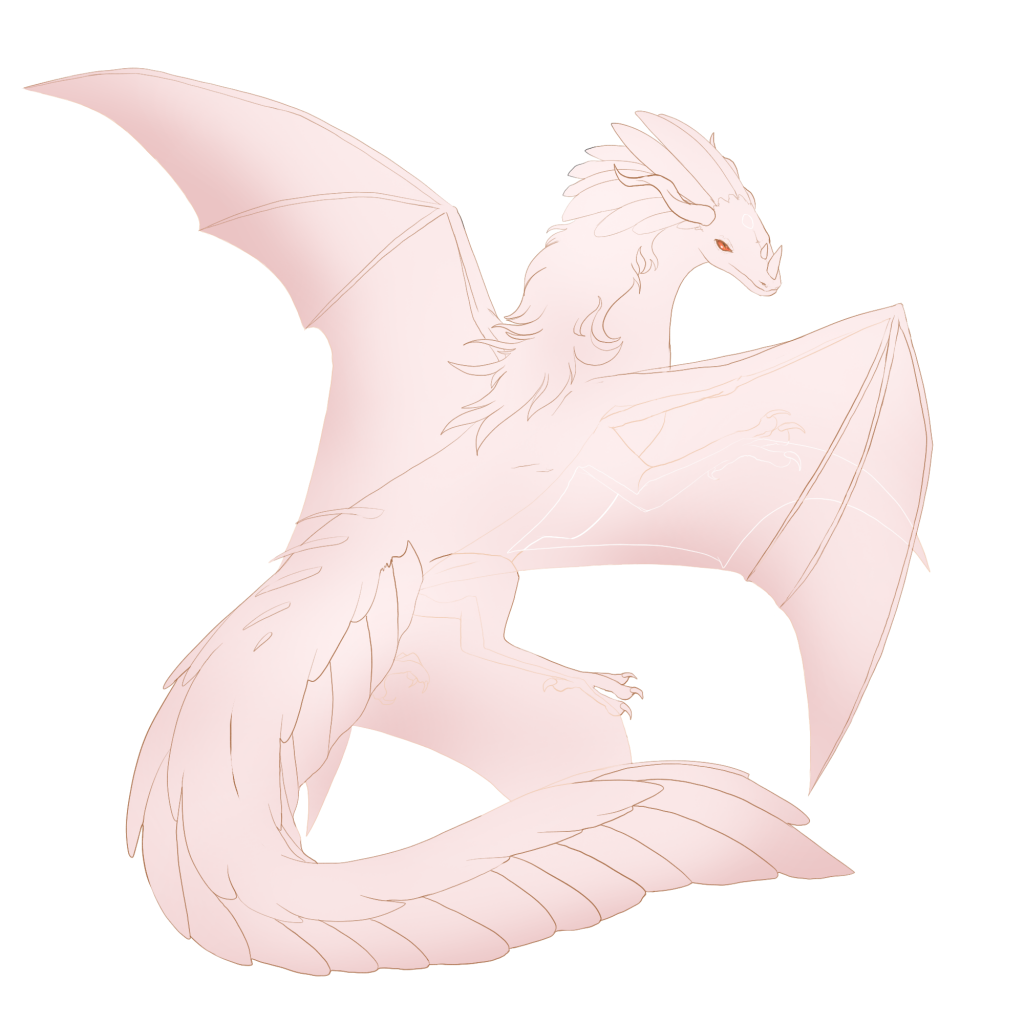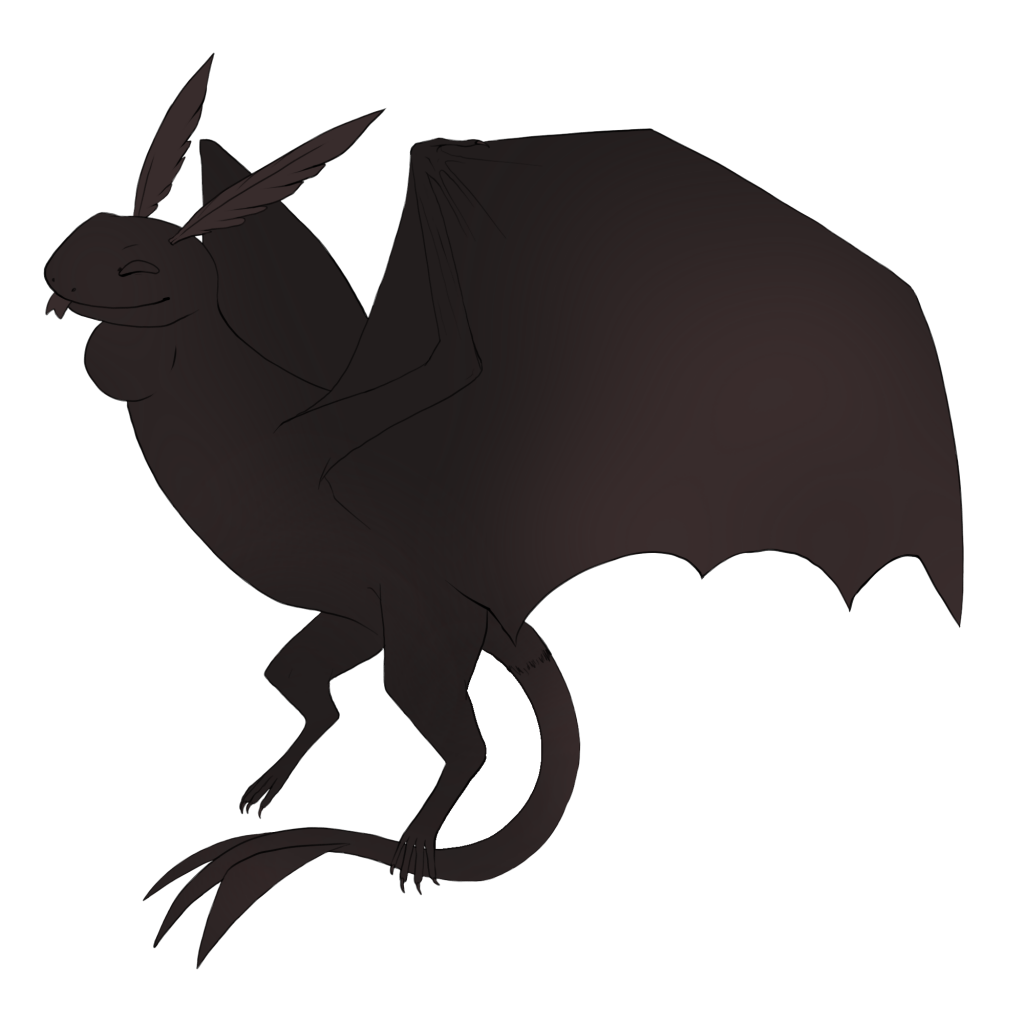Traits
Multi-winged
No Element | Mutation
Your dragon has more than one pair of wings. Any pairs of wings may be located anywhere on the body, so long as they are mirrored on the other side of the body.
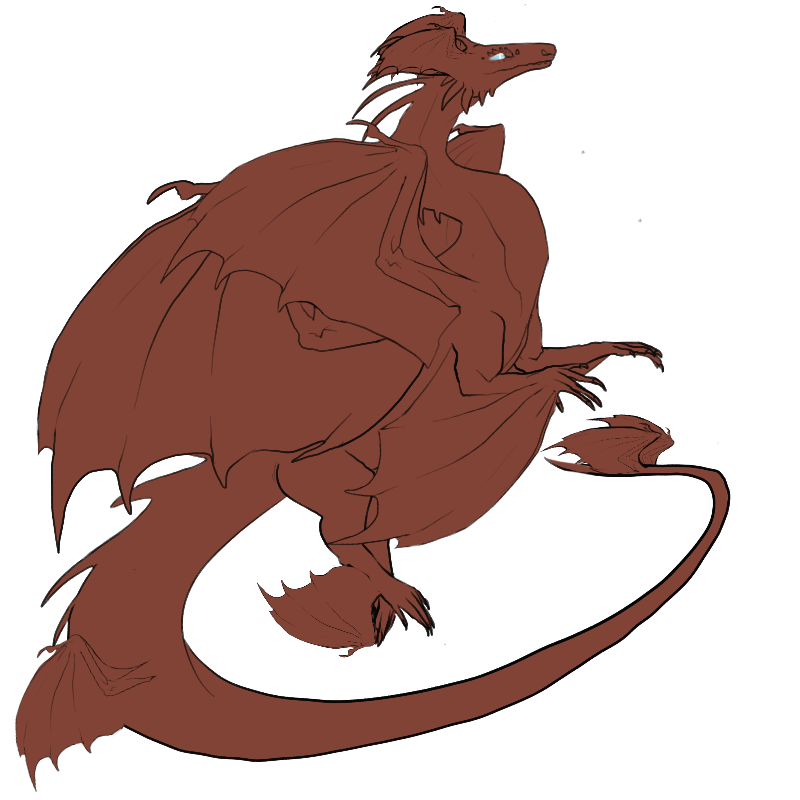
The type of wing will match the dragon's genetics, and the wings otherwise follow normal rules. If your dragon is wingless, then you may either 'hide' the trait, or you may pick wings based on the scale type. These wings do not affect the genetics/offspring of the dragon--it will still be treated as wingless for breedings.
- Smooth Scales -- > Leather Wings
- Velvet Scales -- > Leather Wings
- Artificial Scales -- > Artificial Wings
- Feathered Scales -- > Feathered Wings
If your dragon is not wingless, you will need to use the wing type normally available to the dragon. The wing type will be consistent throughout and follow regular wing shape rules. They may also attach at any area, so long as they are symmetrical and recognizable as their wing type.
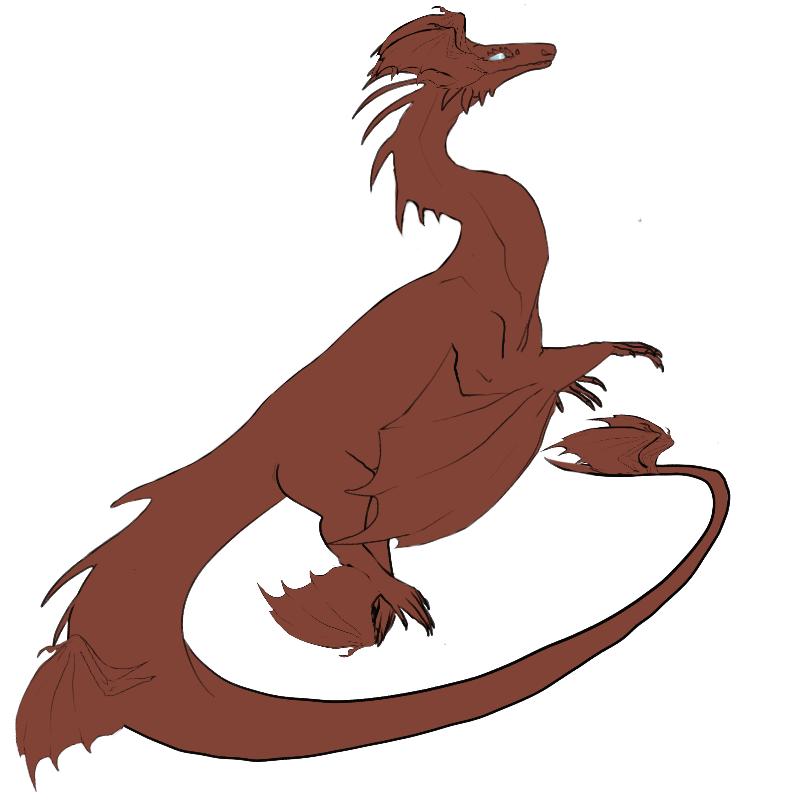
Range
Multi-winged may appear anywhere on the body, as long as it is a symmetrical pair.
Color Rules
Wings will have normal color rules. However, you may choose to color each wing differently! They may also show different markings.
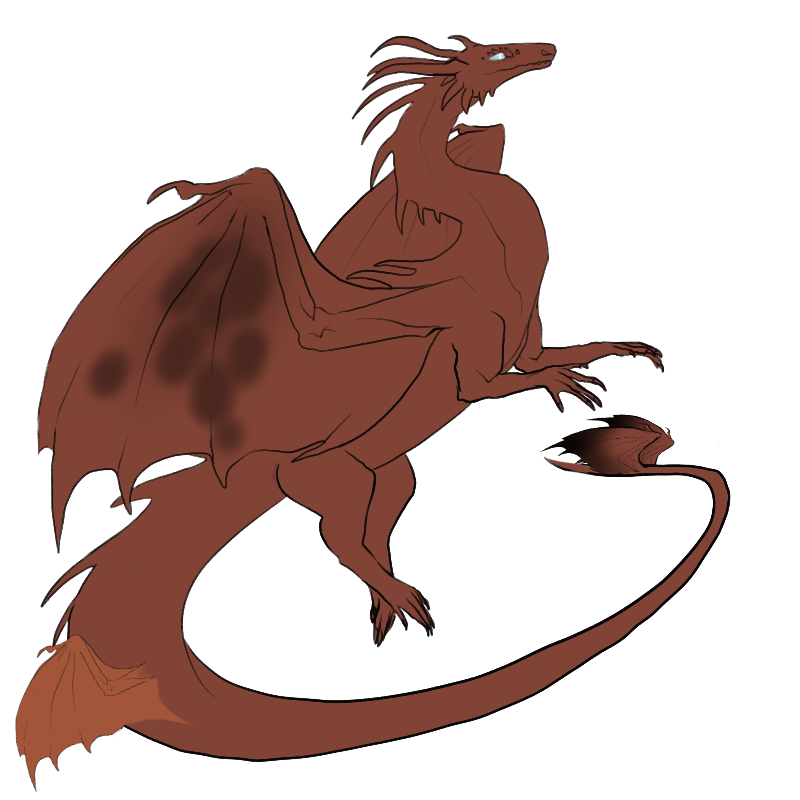
Shape & Effects
The wing shape will always be symmetrical. The wings themselves may have different shapes. In example, for a dragon with Insect Wings, you may have beetle-like wings for one set, then butterfly-like wings for another. You may also choose to apply modifiers to any set of wings--or all of them--so long as the wings are symmetrical. In example, you can choose for leather wings to have very stylized extensions on one set of wings, but a regular appearance on other sets of wings. Additionally, you can have the wings appear boneless--bending unnaturally and so on.
Notable Interactions
- One Skittertint will be needed per pair of wings affected.
- One Scalestain will be needed per pair of wings affected.
- One Surgical Kit will be needed per single wing affected.
- Two Surgical Kits will be needed to hide all wings.
- Magic effects work normally on each wing. You may also have magic effects on one pair but not on the others, or any ratio you prefer.
- Transparent Skin does not affect wings.
- Pollen may affect scaled areas of the wings. You may choose to have it affect each set differently.
Common Problems
Below: This dragon only has one set of wings. There should at least be two sets of wings.
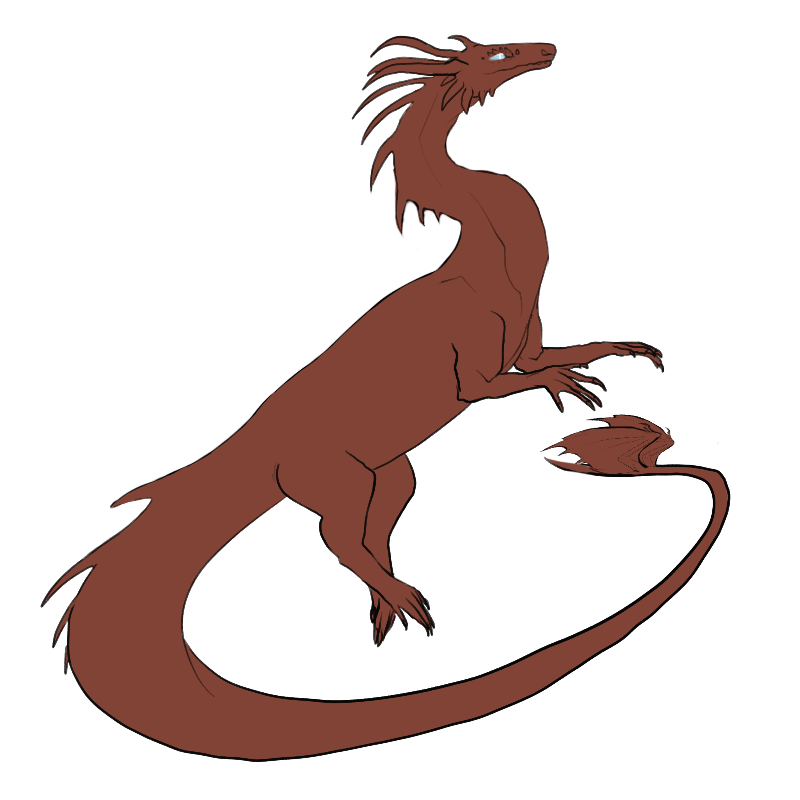
Below: This dragon is using two different types of wings. The wings will always be the same type. There are a few traits that allow for different types of wings: Swarm, Wind IV magic, Jungle IV magic, Thunder IV magic, and Metal IV magic. Without one of these traits, the wings must be the same base type.
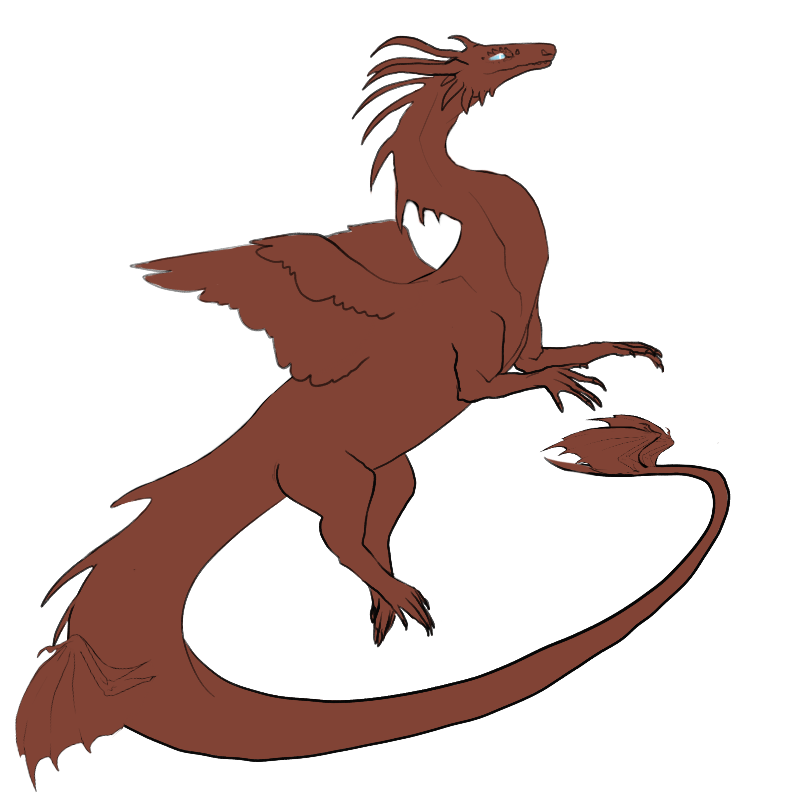
.
Druid
This dragon brings home an additional Collectable Item from Adventures. The item matches the activity. Currently, only one Collectable Item is available.
List of possible items:
- Transport Tanks from Salvaging Adventures
Mage
This allows the maximum amount of Summoning Rites for a dragon, even if they do not have Independent or were born with a Soulbound Familiar. This means they may have two Familiars total. When completing a Rite of Summoning, this dragon does not need a Keepsake Collar.
Mercenary
Affiliation Points earned from Political Affiliation quests are doubled. This does not include randomized effects, such as Familiar effects.
World-eater
Choose an element. The dragon gains elemental breath of that element (such as breathing fire or spitting stones). Once chosen, the element cannot be changed, even with redesigns. This allows the dragon to learn the Tier IV breath attack of that element, even if the dragon does not match that element.
Reliant
This is a trait exclusive to auctions, events,and sales. The dragon may form a bond with a Rider of any elemental specialty. It does not pass on in Breedings.
Shifter
This dragon may exchange any of their physical traits with any other non-mythic traits. Once this dragon is uploaded, its traits are set in stone and can no longer change.
Prodigy
If a dragon would gain stats, it gains that many +1 instead.
Monochrome
No Element | Mutation
Monochrome is a mutation that applies one hue across your entire dragon. You may also ignore brightness rules, as long as all traits are visible. This will never obscure traits. The hue must be the same, literally--two similar colors, such as indigo and purple, do not count as a Monochrome color scheme. The easiest way to create a Monochrome design is to design it normally, then apply a 'color' or 'hue' layer (depending on your program). When you color dip the dragon, it should all have the same hue, even if it varies in brightness or saturation. Black, white, and gray do not have saturation, so they may also be used.
Here is an example of a regular dragon, before and after a Monochrome mutation is applied. The dragon on the left has violet, red, and neon green. The dragon on the right has only blue.
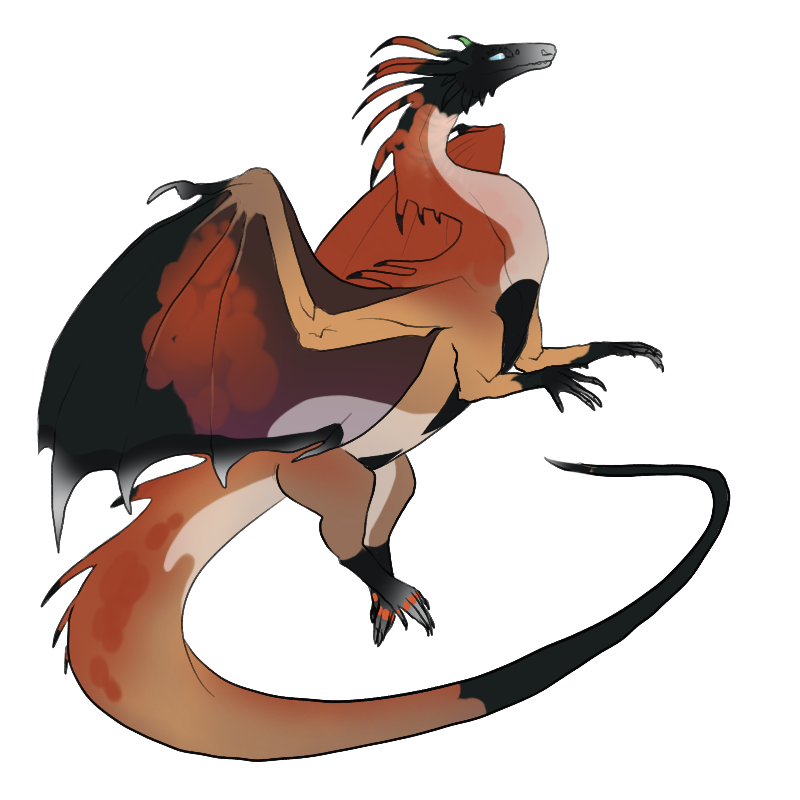
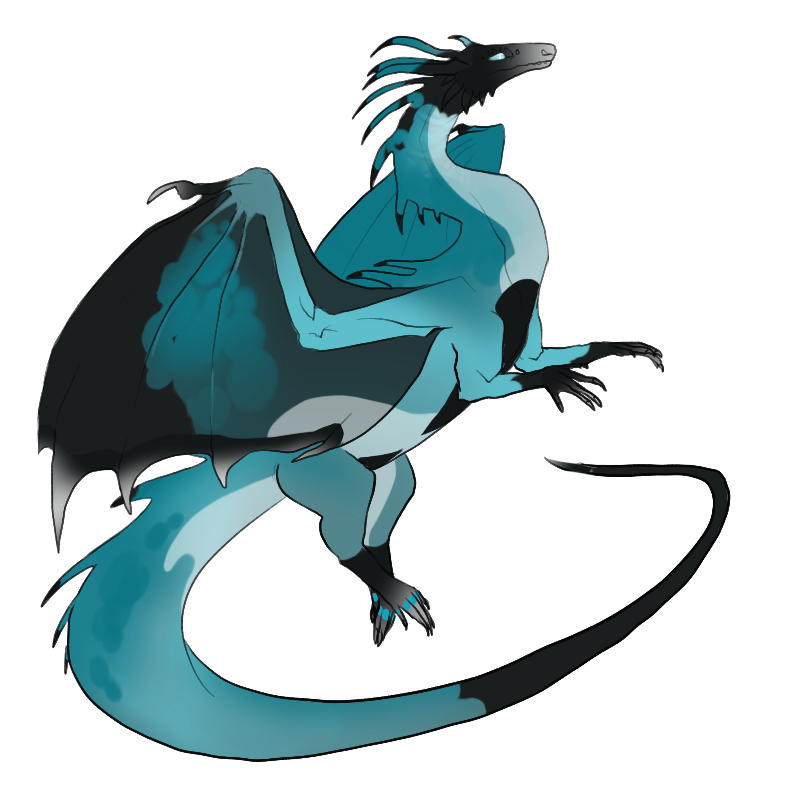
You may also ignore brightness rules. For example, an all-black marking like Dust may be brightened, and a marking like Sable which darkens things underneath it may brighten them instead. Here is an example of both in action, on the same design:
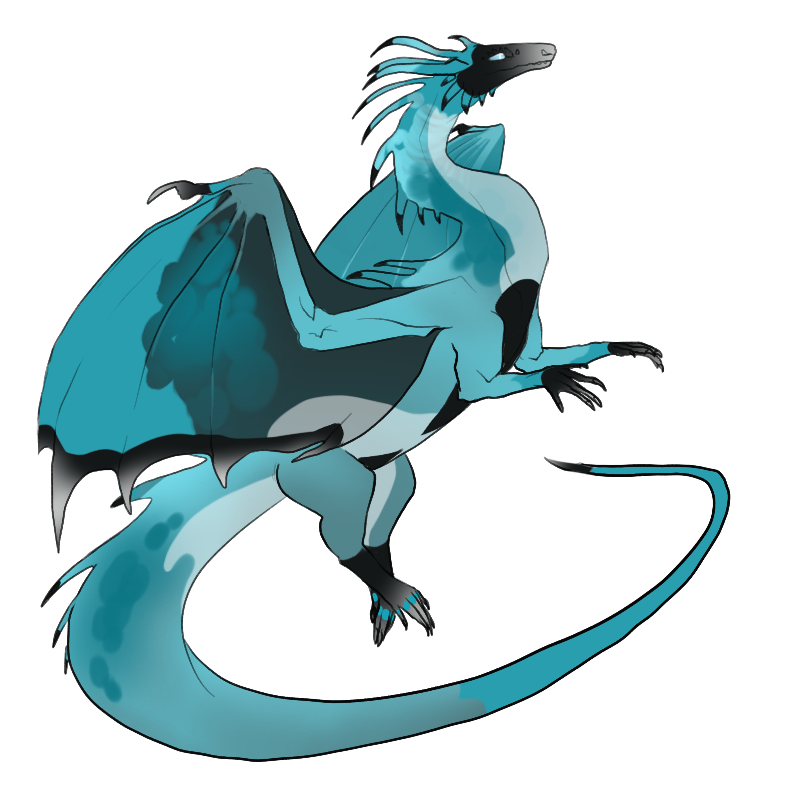
Layering
Monochrome affects the whole dragon.
Shape
Monochrome will not have and holes. It will cover the entire dragon.
Edge
Because Monochrome does not have holes, it will not allow for an edge.
Effects
Monochrome will not be affected by color effects. However, light effects may show through, and they may even break the color scheme. Here is an example of an iridescent, Monochrome dragon:
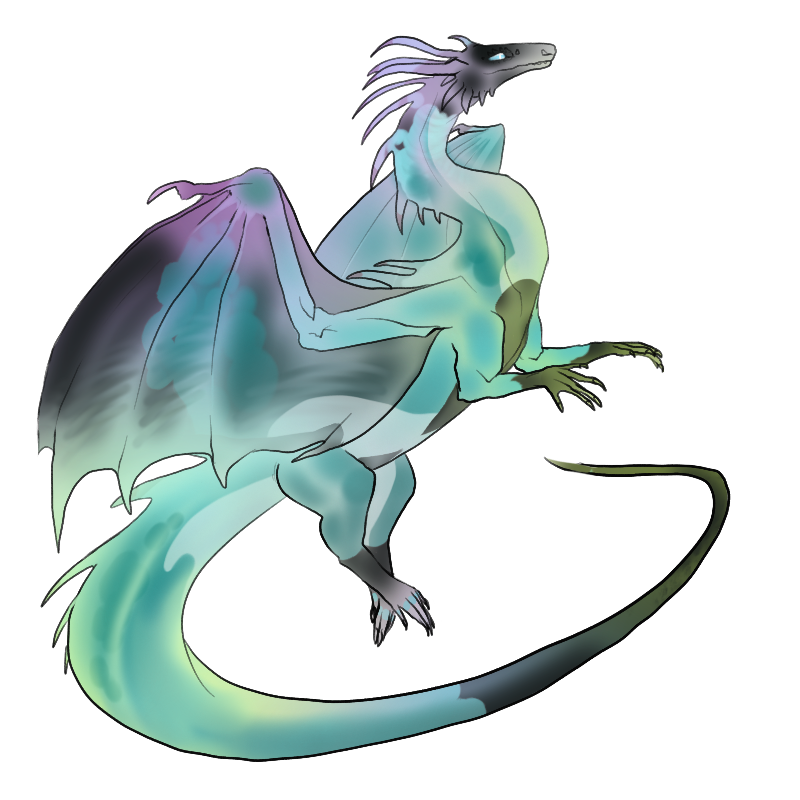
Notable Interactions
- Skittertint may not be used to add a second color to Monochrome.
- Pollen still follows regular color rules. It must still appear pastel, and it can be any pastel color.
- Loremarks, scratches, and scars may follow the color scheme of Pollen.
- Transparent Skin, flesh, tongue, and magic effects still follow regular color rules. Alternatively, you may optionally apply Monochrome to them.
- If a dragon has Display, you may choose two different monochrome colors. It may switch between these two colors. The entire dragon's colorscheme will change--not just one or two marks. It will never show both colors at once.
- If a dragon has Somatic, you may choose for each half to have a different Monochrome color. You may also choose for only one side to show the Monochrome mutation.
Common Problems
Below: This dragon has holes in Monochrome. While this effect is lovely, Monochrome should not have holes. You may achieve this effect when it is combined with the Somatic trait.
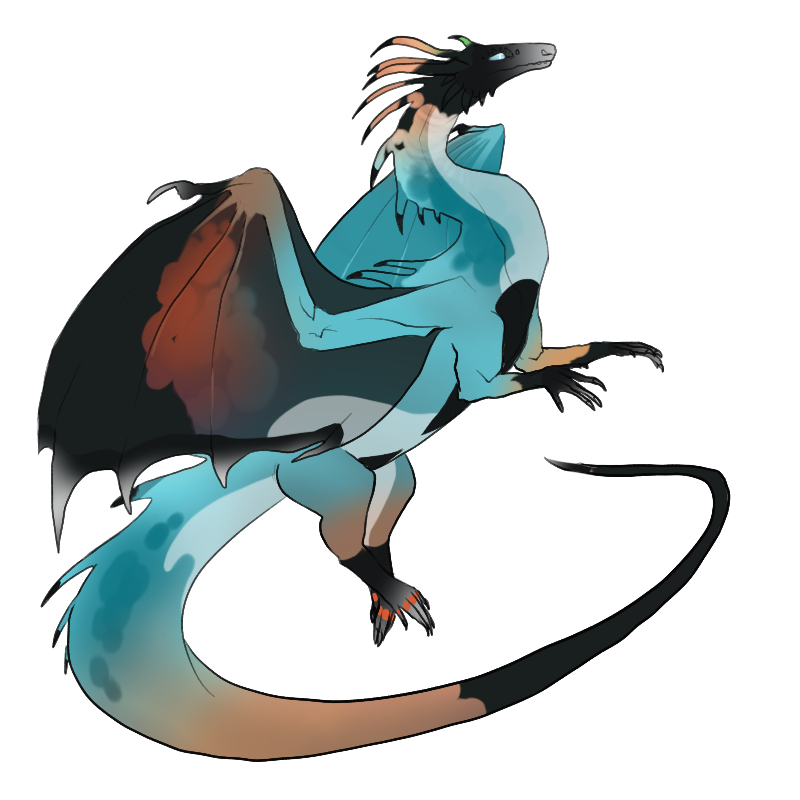
Below: This dragon has two different hues. The blue on the wings is a different hue than the blue of the body. The hue of the dragon must be the same throughout. Part of the free marks are also red instead of blue.
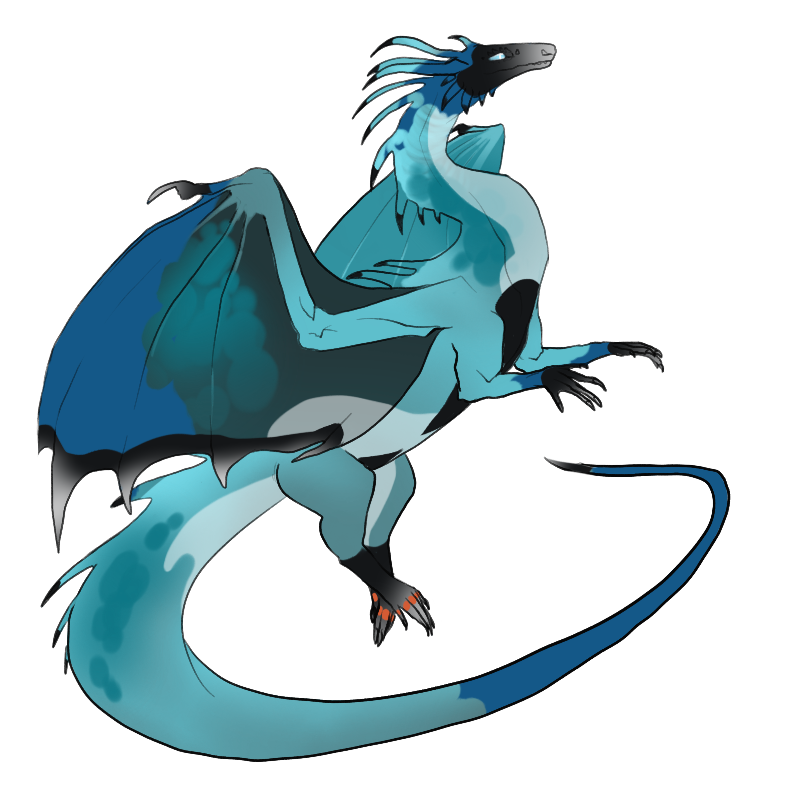
F.A.Q.
Do I need to provide the regular color scheme?
No--the design is judged based on Monochrome color rules, so the design without a mutation is not needed.
Albinism
Prevents most display traits from showing on your dragon and covers the dragon with a white or off-white mark. Its eyes will be red unless it has True Sight. Some things which affect the texture of scales, such as Shimmer, Iridescence, Bioluminescence, or Gilded, will still display. In areas where the scales are thin, some pink coloring may show through, and you may also use very light pink as accents on the body of the dragon.
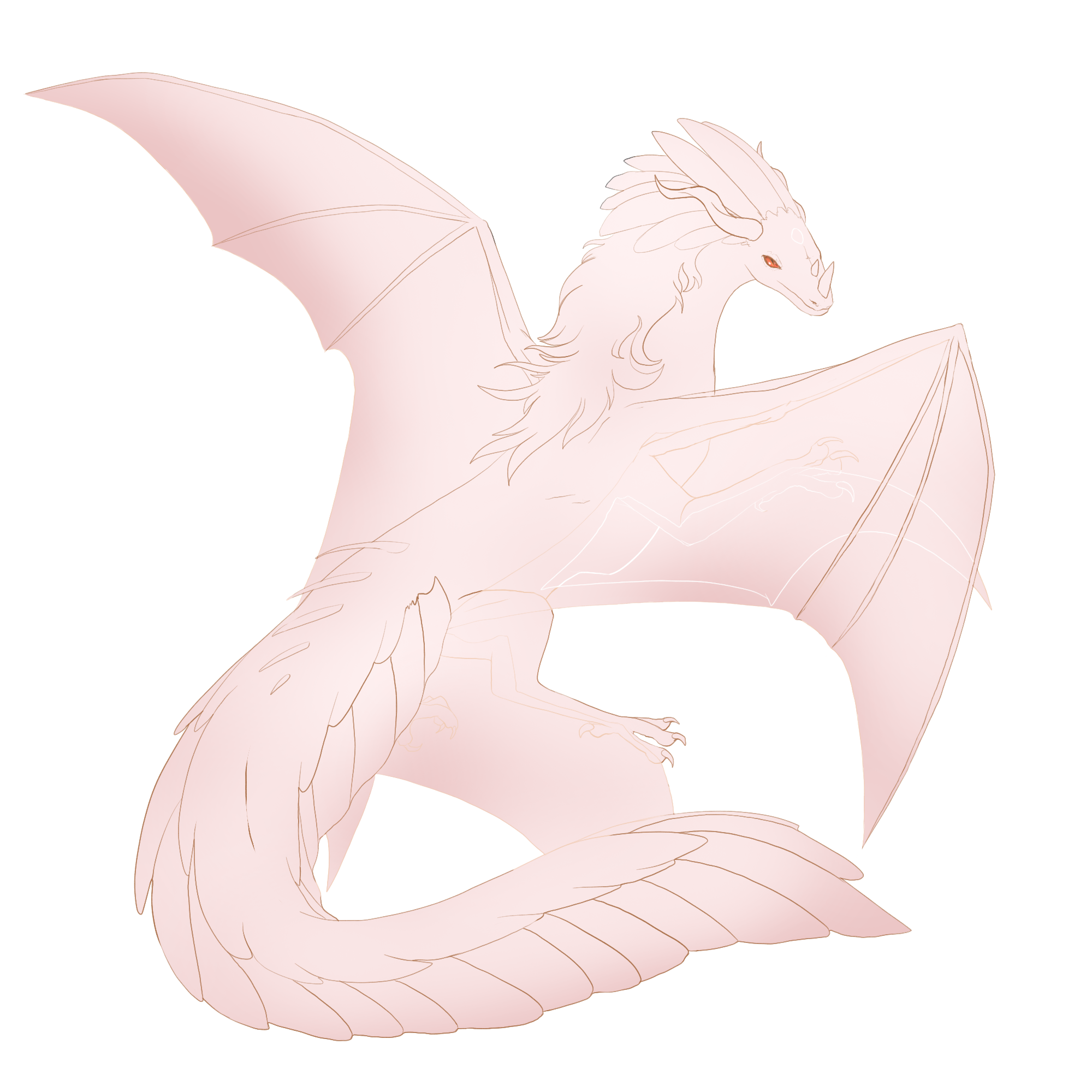
You may erase areas of white to let the regular base show through–these patches will still be lighter colored than normal. You may also show non-white markings as a very light tan or pink color. Here is an example of the same Albino from above with a glowing mark, iridescence, and light tan markings showing: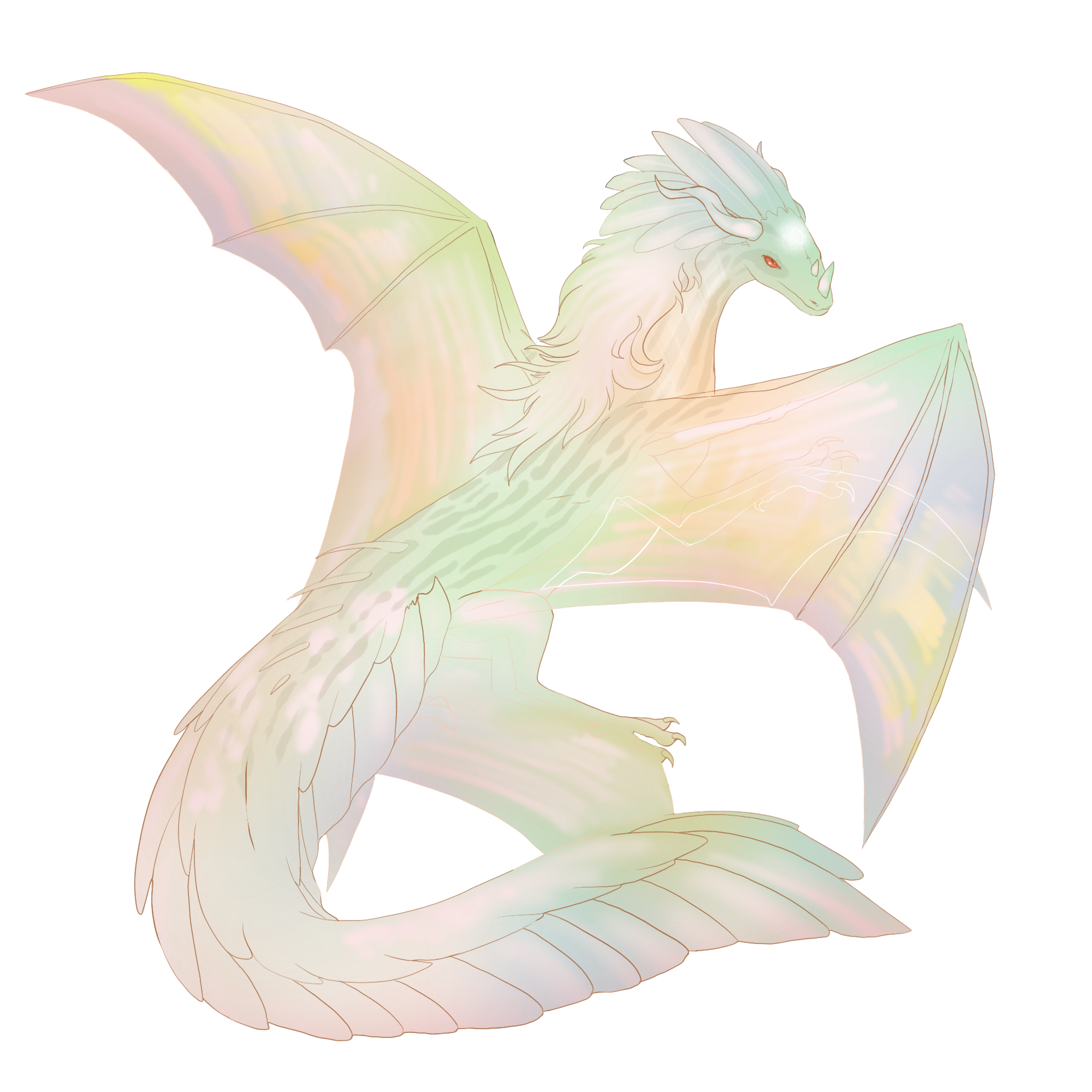
Melanism
Prevents most display traits from showing on your dragon and covers the dragon with a black or near-black mark. Its eyes will be brown or black, unless it has True Sight. Some things which affect the texture of scales, such as Shimmer, Iridescence, or Gilded, will still display. In areas where the scales are thin, some dark brown coloring may show through, and you may also use dark brown as accents on the body of the dragon.
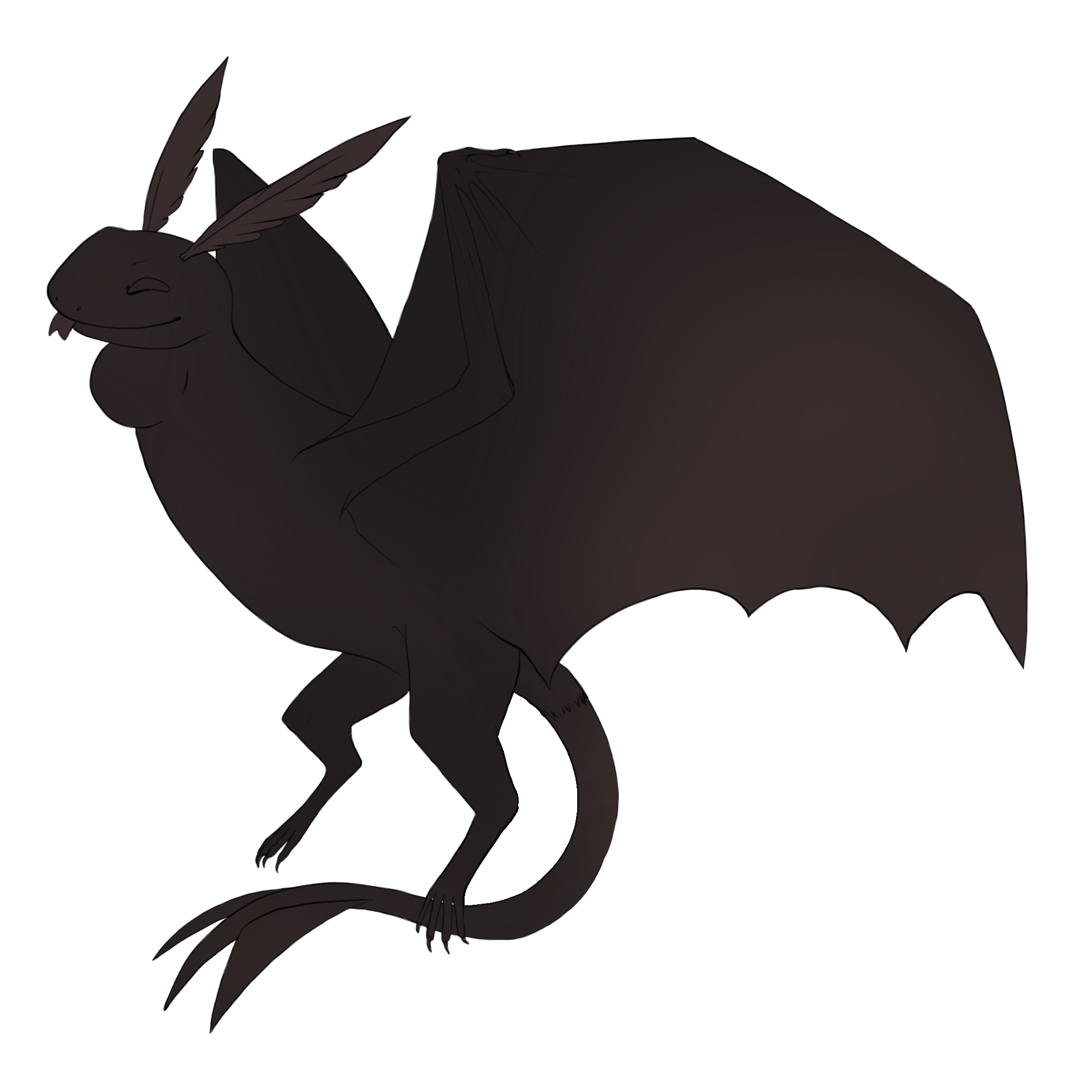
You may also show markings lighter than the base as a dark brown color. Here is an example of the same Melanistic dragon from above with Bioluminescence showing.
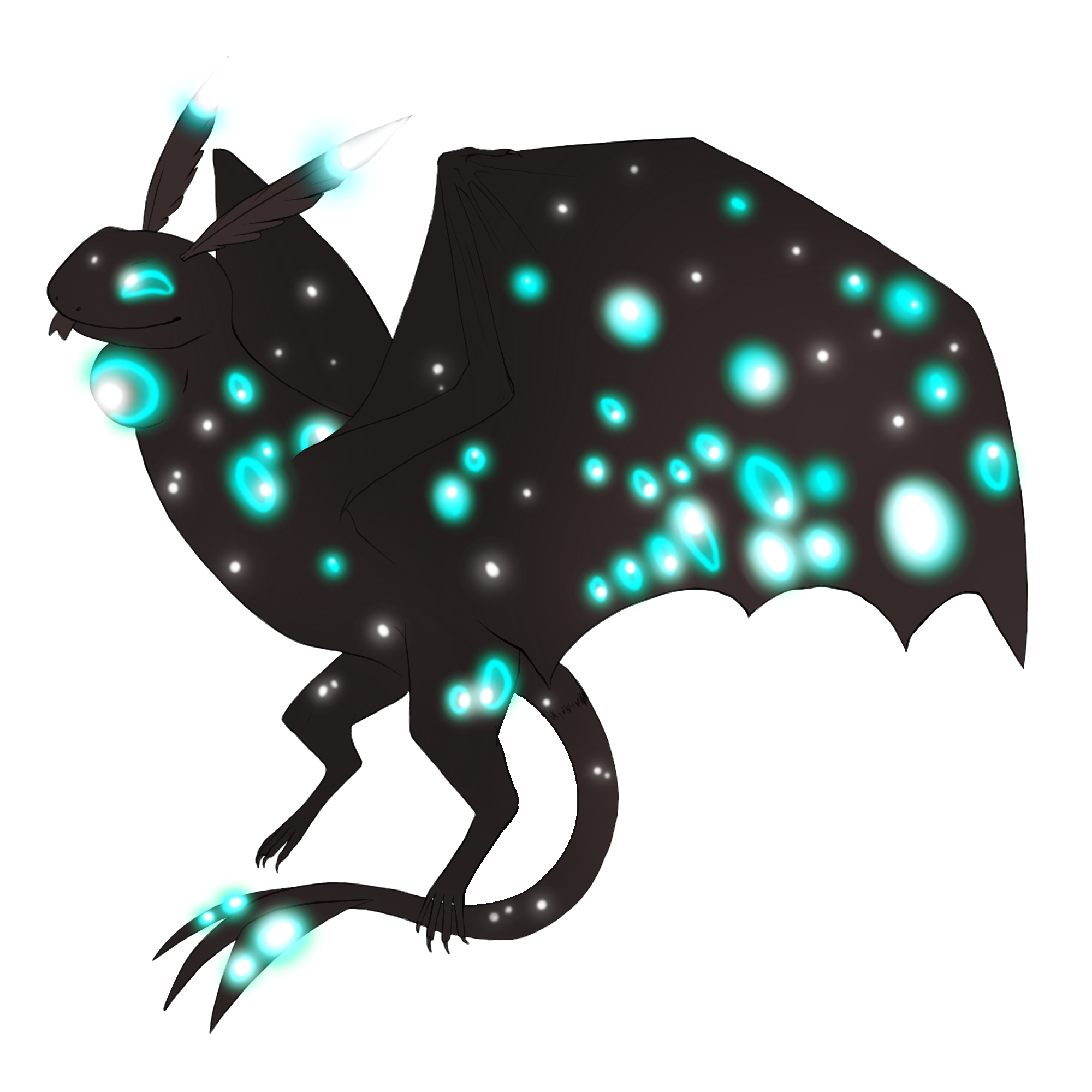
Kaleidoscope
Eggs from this dragon will have one extra random trait. The drop chances are influenced by trait rarity, but not by element rarity. This effect does not stack, even if there are two Kaleidoscope parents. Here are the approximate rarities:
1/1000 (0.1%) : Ultra-rare
99/1000 (9.9%) : Rare
300/1000 (30%) : Uncommon
600/1000 (60%) : Common
Independent
The Independent gene must be active to gain the benefits of the mutation (not Recessive). This is a trait exclusive to auctions, events, sales, and dragons bred from one of those.
By nature, Elemental Dragons use much of their own essence to create their magic, which leaves them reliant on a Rider of some sort. Every now and then, a miracle happens, and a dragon is born which can support itself without the assistance of a Rider. These dragons are called Independent Dragons, and without their dependence on a Rider, they can take a far more active role in the world around them.
Special Activities
- Den Founding - A dragon may found their Den immediately upon hatching. Den items that expand Familiar availability do not work for dragons, as they are limited by magical means, rather than physical space.
- Familiars & Rite of Summoning - After a dragon founds a Den, they may perform a Rite of Summoning to gain their first Familiar. Den items that expand Familiar availability do not work for dragons, as they are limited by magical means, rather than physical space.
- Joining Affiliations - After a dragon founds a Den and completes their Rite of Passage, they may join an Affiliation.
- Jobs - Independent dragons may take one Job: they may unlock their first Job after undergoing their Rite of Passage, may gain a promotion at level two, and may become a master at level four.
- Challenges - Dragons may compete in Races and Expeditions on their own, though they may be at a disadvantage without a Rider helping them. For Taming, they may invite a Rider of their choice to assist. If their chosen Rider swaps, they will still keep progress from previous attempts. They must have some sort of Rider accompanying them during Tamings.
Co-existing with a Rider
These dragons do not require a Rider, but they may still choose to bond with one. When they do bond, they do not need to match the elements of the Rider. There are a few caveats to bonding with a Rider, listed below.
- Dens and Familiars - A dragon may share their Familiars with the Rider, but not the Rider's other dragons. In example, if a dragon has a Blue Sea Dragon, the Rider may use them in the rolls, but not another of the Rider’s dragons. They are only shared between the dragon and Rider. The same applies to Dens–a Rider is considered an inhabitant of their Dragon’s den, but other dragons belonging to that Rider are only visitors.
- Political Affiliations - When bonded to a Rider, the dragon will take on the Affiliation of their Rider. If they were previously Independent and a member of the same Affiliation, then the dragon’s currency will be moved to the Rider’s wallet. If they were different Affiliations, then the dragon’s old Affiliation currency will be lost. If an Independent dragon separates from a Rider, they do not take their currency with them, and will have to re-enroll into an Affiliation to begin duties alone again.
Greying
Greying is a mutation that creates patches of desaturated scales on the dragon, desaturates a few markings of the dragon, or desaturates the dragon entirely. The areas affected by greying should not be recognizable as a particular color, and therefore greying is almost entirely desaturated. Here are some examples of greying.
Normal Design:
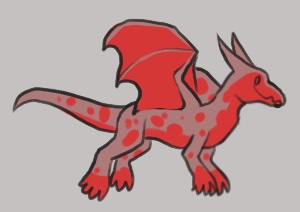
With Greying Applied:
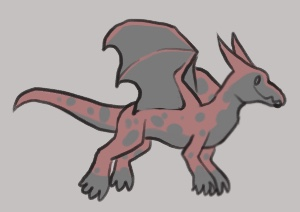
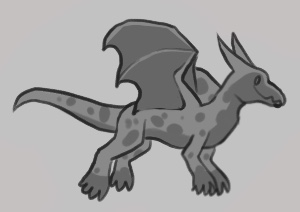
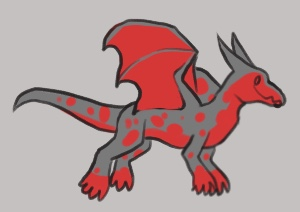
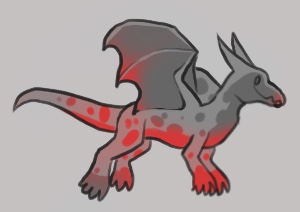
Genesis
Allows the dragon to have eggs without a mate. Courtship art is unavailable for this type of reproduction. The parent would be used as both the mother and father in the breeder, so it does not create true clones 100% of the time. Eggs born from Genesis will have the same lineage as their parent. It has a lower chance of passing than other mutations. It will never appear randomly in a clutch. This dragon may still breed normally with other dragons.
Frail
One of the Dragon’s elements is replaced with Thunder or Dark. You may choose which element is replaced, and with what. This mutation cannot be made recessive. On single element dragons, you may tack on one of the two or replace the single element.
Fortune
This dragon will always bring an extra item home from activities.
Elemental Chimerism
Your dragon has their element rolled twice, raising the maximum number of elements to between two and four. Only one set of elements may pass to the children, which must be designated at the design stage. This primary set of elements is treated as the parent's elements during breeding. They gain the benefits of multiple elements where applicable, such as magic mastery or marking inheritance. It has access to all color sliders that its elements do.
Elemental Anomaly
This dragon is born with Tier IV magic of the corresponding type. Additionally, the Elemental Anomaly mutation will display magical effects in its design from the moment it’s hatched. They also gain a terrain bonus from the corresponding element and may wear equipment of a matching element. It has access to all color sliders that its anomaly does, in addition to the palette of its natural elements. You can find magical effects on the element page for that anomaly's element. Note that while this can pass on to offspring, the anomaly element is still selected random. Here are quick links to the element pages:
Light | Fire | Jungle | Thunder | Earth | Ocean | Storm | Wind | Dark | Metal
Or you can click here for a broad guide on using magical effects on your dragon.
Eclipse Gene
Eclipse is a sex separate from male and female, but during breedings, they may fill in for either one. At least one male or female still needs to be in the breeding--two Eclipse dragons can't breed together. As with all sexes in this game, these dragons may use any pronouns and identify as any gender. This sex only appears when the Eclipse Gene mutation is present on a dragon. Rites of Renewal cannot transform a dragon into this sex. Please be mindful of any pronouns that come after the dragon's sex, should you see them.
